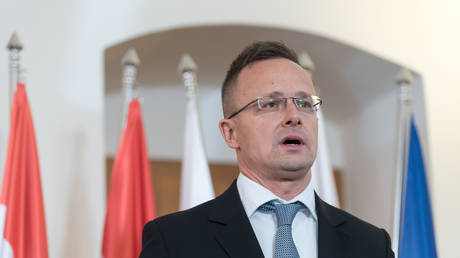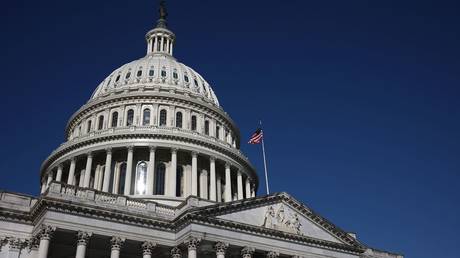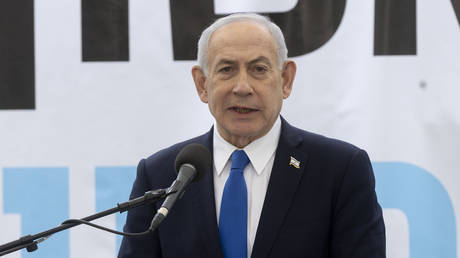
Budapest has said it would not concede to even “minimal” restrictions despite facing “heavy pressure”
Hungary will not allow the EU to impose any sanctions against the Russian nuclear energy industry, Foreign Minister Peter Szijjarto told journalists on Thursday following an EU ministerial meeting in Brussels. Budapest is facing tremendous pressure over the issue, he explained, adding that this situation would not affect the nation’s position.
“Here and now, I would like to state again that this will definitely not happen,” Szijjarto said. “Hungary will not [agree]to nuclear [industry]sanctions of any kind, even minimal,” he added.
The minister indicated that the expansion of the Hungarian Paks Nuclear Power Plant was crucial to the nation’s energy security. Hungary earlier struck a deal with Moscow on expanding the facility. Budapest would block any initiative that would restrict cooperation with Russia in the nuclear energy field, he added.
According to Szijjarto, restrictions against the Russian nuclear industry were touted as part of the bloc’s 11th sanctions package currently in the works in the EU. The minister pointed out, however, that some other EU members who also make use of nuclear energy opposed the idea as well.
Hungary had already blocked a similar initiative back in February when the EU adopted its 10th sanctions package against Russia over its ongoing military campaign in Ukraine. At the time, Szijjarto also said that the package would definitely exclude the country’s nuclear energy branch.
Moscow and Budapest struck the deal on Paks expansion back in 2014. Russia is about to build two new power generating units under its state-of-the-art VVER-1200 pressurized water reactor project, which is up to the highest modern safety standards.
The Paks plant already produces a sizable portion of all energy consumed by Hungary and the facility’s expansion is about to see its share in Hungary’s total energy production double, according to RIA Novosti.
The developments come as the EU struggles to find new areas of the Russian economy to target with restrictions, an issue that was acknowledged by President of the European Council Charles Michel as early as in February, during the previous bloc’s sanctions drive.
The restrictions the US and its allies in Europe and elsewhere have slapped Moscow with since the beginning of the Ukraine conflict were much “tougher than expected,” according to Moscow’s own admissions. Yet, they failed to bring Russia’s economy to its knees and the nation’s economic outlook has been improving, according to both the Russian Central Bank and the World Bank.




